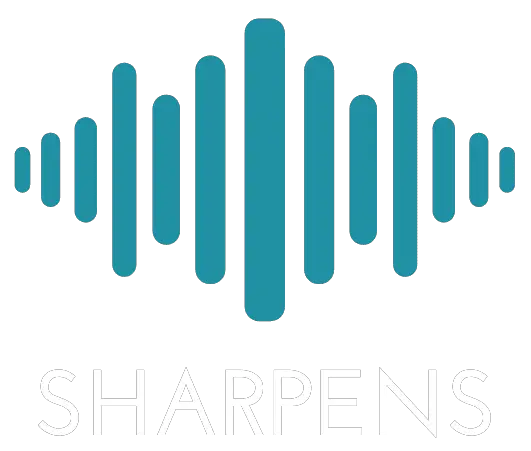Formed in 2007, Passion Pit is an indietronica band from America. They specialize in a relatively new genre that combines rock-based tunes with a lot of elements from electronic music. Passion Pit’s lead singer is Michael Angelakos. He is important to the analysis of this song as it is inspired from the context of his personal background. The band’s debut album was released way back in 2009. It went by the name, ‘Manners’. However, it was their 2012 album Gossamer that made them truly popular. “Take a Walk” was a part of this very album, and the Rolling Stone named it the 3rd best song of 2012.
What does the Title mean?
Michael Angelakos’ ancestors themselves were immigrants who came to America for a better life. The whole song revolves around the personal experiences of immigrants who believed in the American dream and crossed the oceans to give their children a better life. However, the immigrant life in America wasn’t really what they expected to be. It is still not with all the political unrest and discrimination. The title of the song, “Take a Walk” is about clearing one’s head to escape from all the immigrant-related troubles that one faces. If the context of the song is not taken into account, the song title can be interpreted as taking a break from any kind of difficulty that the listener might be facing. It’s basically a temporary solution to situations when things get too overwhelming for an individual to handle. If you are being overpowered by your negative thoughts, just take a walk. And if we take into the immigrant aspect into account, taking a walk through the streets of America can perhaps help the immigrant or their descendant to reflect on why they came to America in the first place. It can rekindle their dreams and help them examine their ideas about the country itself.
Verse 1 – What does it mean?
“All these kind of places
Make it seem like it’s been ages
And tomorrow some new building will scrape the sky
I love this country dearly
I can feel the ladder clearly
But I never thought I’d be alone to try
Once I was outside Penn Station
Selling red and white carnations
We were still alone
My wife and I
Before we marry, save my money
Brought my dear wife over
Now I work to bring my family stateside
But off the boat they stayed a while
Then scattered across the coast
Once a year I’ll see them for a week or so
At most I took a walk”
The first verse starts with the experience of the narrator who is reminiscing about how his ancestors came to America for the first time. It’s a hint towards the collective memory of a group of people. In this case, they are the ancestors/family members of the narrator. As Michael Angelakos himself descends from immigrant Americans, he’s perhaps tapping into his own memories and perceptions about the same. The second line about skyscrapers being built rapidly can be interpreted as politically charged. It is a commentary on the mindless destruction of natural reserves and open spaces in the name of development and modernization. Cities like New York are akin to mazes of skyscraper that can often become claustrophobic for people who are used to the country and open spaces.
The end of the first stanza in the first verse can be interpreted as how the family of the narrator has drifted apart. The first-generation immigrants lived with their whole family in a particular area. As their businesses picked up pace, and they themselves become wound up in the American capitalist machinery, they moved to new places. Today, if you ask any descendant of any first-generation immigrant (who likely came to America during early to mid-20th century), they’ll tell you that their cousins probably live on the other side of the country. It begets a feeling of alienation. The narrator finds himself alone in this big country without his people.
The second stanza is about the financial crisis that immigrants often find themselves in. This stanza can also resonate with most of the working class in America. They struggle to make ends meet and their whole life is spent trying to save up money for a better life. The phrase “Selling red and white carnations” is proof of this sentiment in this song as most homeless or financially unstable people sell red and white flowers outside places like railway stations and whatnot.
The last stanza, once again, is about the narrator’s observation of how families still come to America on boats to be a part of The American Dream, just to become disillusioned. They find themselves scattered all over the country trying to find work. This is not true just for the immigrants that come to America per se but all immigrant families in general.
What does the Chorus mean?
“Take a walk, take a walk, take a walk
Take a walk, oh-oh-oh
I took a walk
Take a walk, take a walk, take a walk
Take a walk, oh-oh-oh”
Tired of thoughts about his own immigrant ancestors’ struggle, financial crises, and the condition of the working-class immigrants, the narrator decides to take a walk to clear his head. The chorus is a soothing relief that comes at the end of a laden verse. It provides relief to the narrator as well as the listener.

Verse 2 – What does it mean?
“Practice isn’t perfect
But the market cuts a loss
I remind myself that times could be much worse
My wife won’t ask me questions
And there’s not so much to ask
And she’ll never flaunt around an empty purse
Once my mother-in-law came
Just to stay a couple nights
Then decided she would stay the rest of her life
I watch my little children
Play some board game in the kitchen
And I sit and pray they never feel my strife
But then my partner called to say the pension funds were gone
He made some bad investments
Now the accounts are overdrawn
I took a walk”
The first stanza of the second verse is mainly about the debt that the narrator is in. Based on the lyrics, it seems that he has lost everything in a market crash. It could be a reference to the infamous 2008 stock market crash, which destabilized the global economy and ruined a lot of lives. Now that the narrator faces a financial dilemma, he wonders whether his wife would stay with him in these tough times. The line about her not flaunting an “empty purse” hints at the fact that the narrator had finally made it financially after all the difficulties but has lost everything due to the market cuts. Things get tougher for his whole family as well as his extended family.
In the second stanza, he talks about his mother-in-law who came to his house to stay for some time but ended up staying there permanently. This hints at the fact that she lost her house. In the last stanza, his business partner calls him up and tells that all the pension funds are gone. All these happenings coupled with the fact that the album came out in 2012 tells us that this song is also about how the whole society was impacted after the market crash in 2008.
In the second stanza, he also prays about his children never seeing times like these. He prays that they never go through what he has went through his all life. This is quite similar to what those first-generation immigrant parents must have felt, struggling to provide a better life for their children in a country that discriminated against them. Life comes full circle for our rags-to-riches-to-rags immigrant-descendant narrator.
What does the Bridge mean?
“Honey, it’s your son
I think I borrowed just too much
We had taxes, we had bills
We had a lifestyle to front
And tonight I swear I’ll come home
And we’ll make love like we’re young
Tomorrow you’ll cook dinner
For the neighbors and their kids
We can rip apart those socialists
And all their damn taxes
You’ll see I am no criminal
I’m down on both bad knees
I’m just too much a coward
To admit when I’m in need
I took a walk”
The bridge of the song ends up explaining everything and gives us even more context to the narrator’s life. He finally confesses to his wife that they’ve lost everything as they spent a lot to ‘front’ a lifestyle. In rap lingo, ‘front’ means to pretend or fake. The narrator and his wife faked a rich lifestyle by spending a lot and now that the market has crashed, they’ve lost everything. We also come to know about the narrator’s political leaning in the song as he is sure that they’ll rip apart the socialists. His denial of reality manifests in the fact that he doesn’t see himself as a criminal. In America, bankers and wall street stock brokers don’t often see themselves as criminals when they end up duping poor people. In the end, our narrator admits that he is a coward and takes a walk to clear his head. The chorus of the song now takes a dark turn, from inspiring hope to becoming a white-collar criminal’s method of escapism (literal and perhaps metaphorical).
Conclusion
To contextualize this song, we need to take in a lot of facts. After the market crash, only one wall street white-collar worker was sent to prison. A lot of lives were ruined. Everyone got away with the help of the government. Another fact to consider is that the competition in America is cutthroat, and immigrants often face discrimination. And last but not the least, Michael Angelakos explicitly stated that the song does not reflect his own political views, and should be just taken as a story. The complexity of this song is what made it the 3rd best song of 2012.



